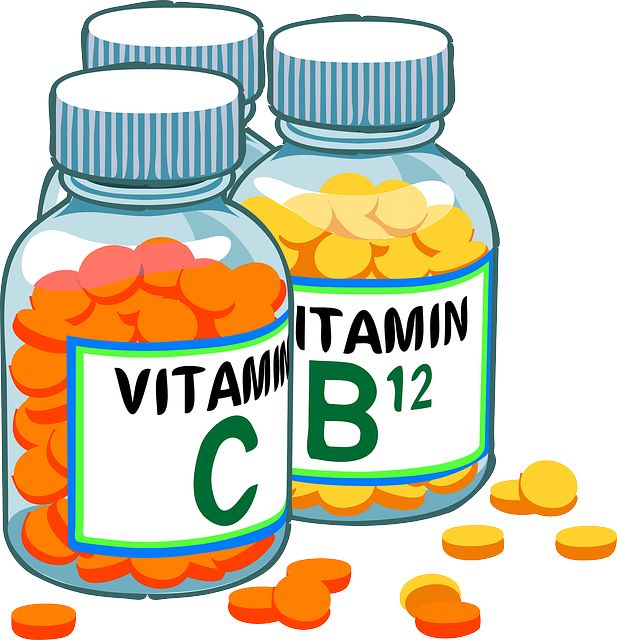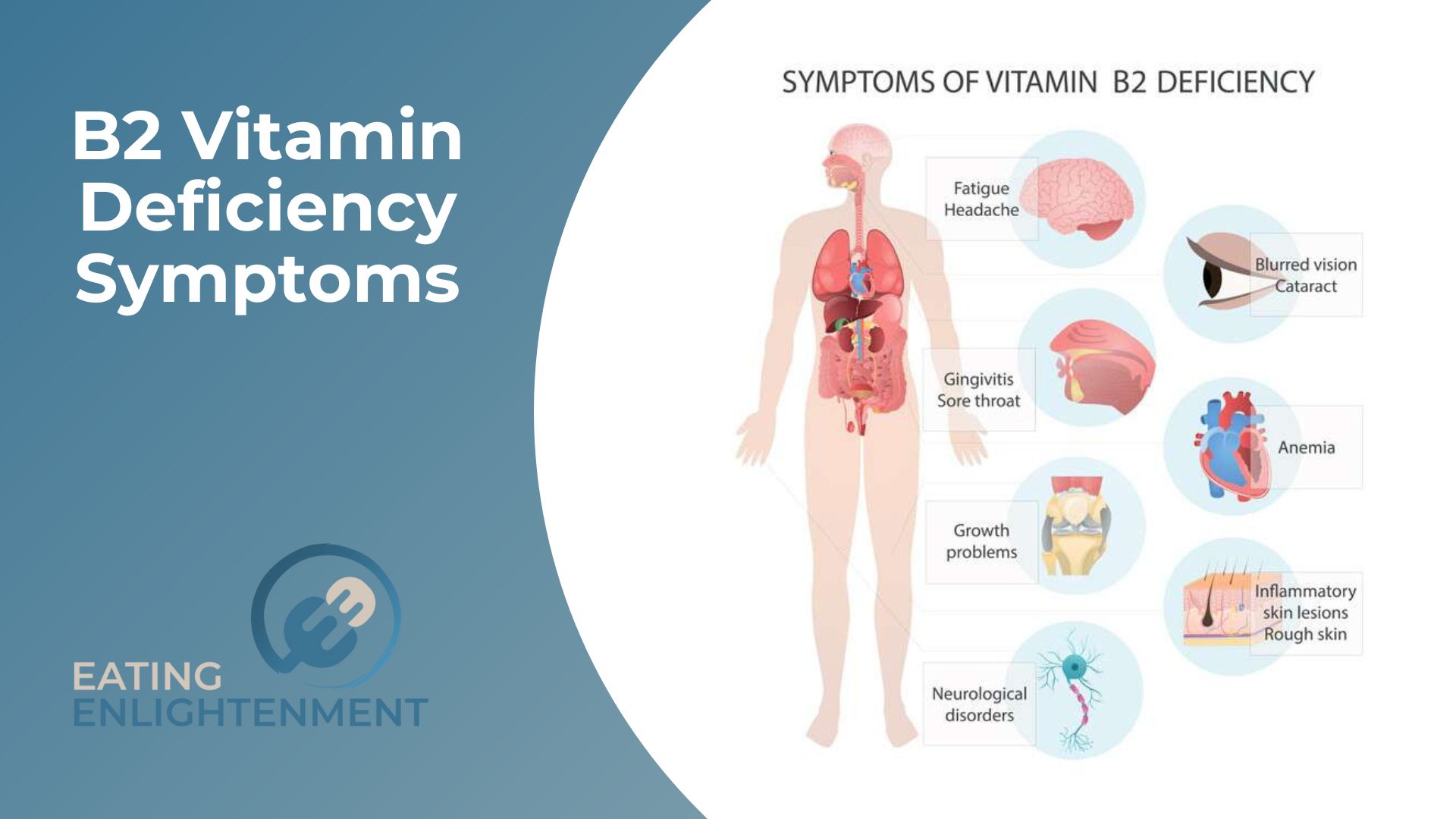If you’re looking for a way to improve your health, you might want to start by taking a closer look at B vitamins.
These eight essential nutrients play an important role in keeping your body healthy and energized, and deficiencies can cause a variety of unpleasant symptoms like dry, chapped lips.
Fortunately, it’s easy to get all the B vitamins you need by eating a healthy diet full of nutrient-rich foods.
In this article, we’ll take a closer look at what each of these vitamins does for your health and provide some tips for getting more of them into your diet.
So whether you’re looking to boost your energy levels or just want to make sure you’re getting all the nutrients your body needs, read on for everything you need to know about B.
Symptoms of Vitamin B Deficiency

The eight B vitamins are essential nutrients for a healthy body. They play an important role in keeping cells healthy and energized.
Depending on the severity of your vitamin B deficiency, symptoms will differ. Some foods are abundant in several B vitamins while others are more enriched in specific ones.
Did you know that what you eat directly impacts the quality and quantity of nutrients your body takes in? By changing up your diet to include more nutrient-dense foods, you can make a big impact on your health.
If you don’t know 8 essential B vitamins are, here’s a quick rundown:
- Vitamin B1 (thiamine)
- Vitamin B2 (riboflavin)
- Vitamin B3 (niacin)
- Vitamin B5 (pantothenic acid)
- Vitamin B6 (pyridoxine)
- Vitamin B7 (biotin)
- Vitamin B9 (folate)
- Vitamin B12 (cobalamin)
Each vitamin has its own unique function, but together they work to keep your cells healthy and functioning properly. A deficiency in any of these vitamins can cause a variety of symptoms.
Toxicokinetics

Toxicokinetics is the study of how a chemical enters and leaves an organism. It’s important to understand toxicokinetics when studying the toxicity of a substance because it can help determine how much of a substance is needed to cause adverse effects and how long those effects will last.
For example, let’s say you’re exposed to a chemical that’s quickly absorbed into your bloodstream. If that chemical is also quickly eliminated from your body, the level of exposure and potential toxicity will be low.
On the other hand, if the chemical is slowly absorbed and takes a long time to leave your system, the level of exposure and potential toxicity will be high.
Epidemiology
Epidemiology is the study of how a disease affects a population of people. It’s important to understand epidemiology when studying the toxicity of a substance because it can help determine how likely it is for someone to experience adverse effects from exposure to that substance.
For example, let’s say you’re exposed to a chemical that’s known to cause cancer. If the incidence of cancer in the general population is low, then your risk of developing cancer from exposure to that chemical will also be low.
On the other hand, if the incidence of cancer in the general population is high, then your risk of developing cancer from exposure to that chemical will also be high.
Recommended intakes
The recommended intakes of a nutrient are the amounts that are sufficient to meet the needs of most healthy people.
For example, the recommended intake for vitamin C is 90 mg/day for men and 75 mg/day for women. This means that if you consume more than these amounts, you’re likely getting more than you need and may be at risk for adverse effects.
On the other hand, if you consume less than these amounts, you’re likely not getting enough and may be at risk for deficiency symptoms.
The best way to get all the nutrients your body needs is by eating a healthy diet that includes a variety of nutrient-rich foods.
For more info about recommended intakes, please read Are You Taking Too Much Supplements?
Evaluation
A number of different methods can be used to evaluate the toxicity of a substance.
One method is to look at the LD50, which is the dose that causes death in 50% of the test animals. The LD50 can help determine how toxic a substance is, but it doesn’t give any information about how long it takes for the toxicity to occur.
Another method is to look at the half-life of a substance, which is the amount of time it takes for the concentration of the substance in the body to decrease by 50%. The half-life can help determine how long the effects of a toxic exposure will last.
A third method is to look at the NOAEL, which is the dose that causes no observable adverse effect in the test animals. The NOAEL can help determine how much of a substance is needed to cause adverse effects.
No one method is perfect, and all three methods should be used when evaluating the toxicity of a substance.
When it comes to the toxicity of vitamins, it’s important to remember that more is not always better. In fact, taking large doses of some vitamins can be dangerous. For example, taking too much vitamin A can cause birth defects, and taking too much vitamin D can lead to kidney stones.
Treatment
The best way to treat a vitamin toxicity is to stop taking the supplement and see a doctor if you’re experiencing any adverse effects.
If you’re not sure whether you’re taking too much of a certain vitamin, you can check the Supplement Facts label on the product to see how much of that vitamin is in each serving.
Riboflavin and healthy diets
A healthy diet is important for many reasons, including maintaining a healthy weight, reducing your risk of chronic diseases, and getting the nutrients your body needs.
Eating a variety of nutrient-rich foods is the best way to get all the nutrients your body needs. However, taking a riboflavin supplement can help ensure that you’re getting enough of this important nutrient.
If you’re considering taking a riboflavin supplement, talk to your healthcare provider to ensure that it’s right for you. Riboflavin supplements can help.
Conclusion
Vitamin B2, also known as riboflavin, is an important nutrient that plays a role in many processes in the body.
Getting enough riboflavin is important for maintaining good health, and you can get it by eating a healthy diet that includes a variety of nutrient-rich foods. You can also get it by taking a riboflavin supplement.
If you’re considering taking a riboflavin supplement, talk to your healthcare provider to ensure that it’s right for you.



